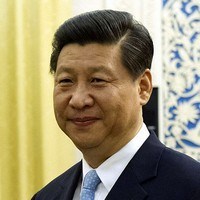Last week, at a joint press conference with Chinese Premier Li Keqiang during Li’s visit to Berlin, German Chancellor Angela Merkel openly disagreed with the European Commission’s plans to impose punitive tariffs against Chinese-made solar panels. The commission has accused China of unfair trade practices that undercut European producers. But Merkel’s concerns for German exports to China took precedence over European Union solidarity, highlighting the difficulties Brussels has faced in forging a unified policy toward Beijing.
China has been a strategically important partner for Europe for at least two decades, but the economic crisis in Europe has changed the nature and importance of the relationship. European states face a near-term future dominated by low growth or even recession, high unemployment and slumping demand with little prospect of a quick recovery. The ongoing crisis has also exposed fundamental differences among the European economies that have forced a reconsideration of China’s potential contribution to individual economies and significant divergence in member state policies toward China.
As a result, the EU has struggled to formulate a coherent approach toward China. Trade and strategic relations are the most important concerns, but the crisis has shifted Europe’s priorities away from strategic goals such as global governance, regional stability and human rights to a focus on the economy. More importantly, it also has led member states to prioritize their individual economic needs and, as a result, their own policies toward China. The end result has been to undermine efforts to craft a pan-European approach. The dispute over solar panels is the most recent and prominent example, but another is brewing over Chinese-made mobile telecommunications equipment. These intra-EU trade tensions are reinforcing member states’ desires to pursue a unilateral approach—a factor China is more than willing to take advantage of.

